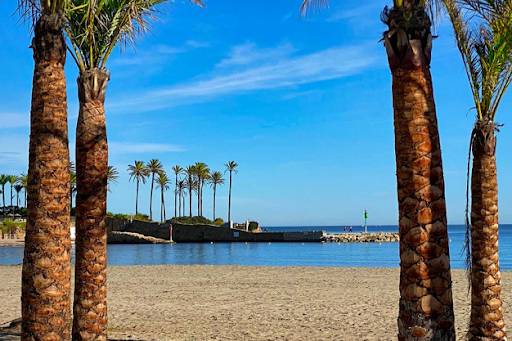Relocating to Spain offers an enticing combination of sunshine, vibrant culture, world-class cuisine, and a slower pace of life that appeals to many seeking a change. Whether you’re moving for work, retirement, or a lifestyle shift, Spain’s rich history, Mediterranean coastline, and dynamic cities make it a prime destination for expats. Here’s everything you need to know about moving to Spain, from the visa process to settling into daily life.
Why Move to Spain?
Spain is a popular choice for those seeking a high quality of life. With its warm climate, relaxed lifestyle, and affordable living costs compared to other Western European countries, Spain is especially attractive for retirees, remote workers, and digital nomads. Spain’s healthcare system is also highly regarded, ranking among the best globally, and public transportation is efficient and widespread.
The country offers a wide variety of environments, from bustling urban centers like Madrid and Barcelona to charming coastal towns and rural villages, ensuring that there’s a perfect fit for anyone looking to make a new home.

Visas and Residency Requirements
Before moving to Spain, it’s crucial to understand the visa and residency requirements, which vary depending on your nationality and the purpose of your stay.
EU/EEA Citizens: If you are a citizen of an EU or EEA country, you can move to Spain without needing a visa. However, after staying for more than three months, you must register as a resident and obtain an NIE (Número de Identificación de Extranjero), Spain’s foreigner identification number.
Non-EU Citizens: Non-EU nationals, including Americans, Australians, and Canadians, will need a visa to reside in Spain long-term. The most common options include:
Work Visa: For those with a job offer in Spain, your employer typically sponsors this visa.
Non-Lucrative Visa: This visa is ideal for retirees or those not seeking employment in Spain. It requires proof of sufficient financial resources and private health insurance.
Student Visa: If you’re moving to study, you’ll need a student visa that allows you to stay for the duration of your program.
Golden Visa: For those investing in property worth €500,000 or more, the Golden Visa offers residency with a clear path to citizenship.

Finding a Place to Live
One of the first steps upon arrival in Spain is finding suitable accommodation. Major cities like Madrid, Barcelona, Valencia, and Seville offer diverse housing options, from modern apartments to historic townhouses. If you prefer a more tranquil lifestyle, the countryside and smaller coastal towns offer more affordable property prices.
Renting is common for expats, particularly when first arriving. Here’s what you should know about renting in Spain:
Contracts: Standard rental contracts are for one year, with options to renew.
Deposit: Typically, landlords ask for a one-month deposit, but it can be more in competitive markets.
Utilities: Rent prices usually don’t include utilities, so factor in the costs for electricity, water, and internet.
Buying property is also a popular choice, especially for those planning to settle long-term. Spain’s property market has plenty of opportunities, with prices varying greatly depending on the region.
Healthcare in Spain
Spain has an excellent healthcare system, which consists of both public and private services. Public healthcare is free for residents and citizens, but non-EU citizens will need to prove they have health insurance as part of their visa requirements.
Expats living and working in Spain typically contribute to the public healthcare system through social security payments. However, many expats opt for private health insurance, which provides access to a wider range of services, shorter wait times, and more English-speaking doctors.

Cost of Living
The cost of living in Spain is lower than in many Western European countries, making it an attractive destination for expats. However, the costs can vary significantly depending on the region. Larger cities like Madrid and Barcelona tend to be more expensive, particularly in terms of rent, but smaller cities like Seville, Valencia, and Málaga are more affordable.
Rent: Monthly rent for a one-bedroom apartment in a city center can range from €600 to €1,200, depending on the location.
Groceries and Dining: Spain offers relatively inexpensive groceries, especially if you shop at local markets. Dining out is affordable, with many excellent restaurants offering traditional Spanish meals at reasonable prices.
Transportation: Spain’s public transportation system is efficient and affordable. A monthly pass for public transport in major cities costs between €40 and €60.
- Learning the Language
While it’s possible to live in Spain without speaking fluent Spanish, learning the language can greatly enhance your experience. Many Spaniards, particularly in tourist areas, speak English, but daily life and bureaucracy will be much easier if you speak Spanish. There are many language schools throughout Spain, and immersion in the culture is the best way to improve your skills quickly.
Additionally, Spain has several regional languages, such as Catalan, Galician, and Basque, which are spoken alongside Spanish in different areas. Learning a few phrases in the local dialect can be a great way to connect with the community.
Embracing the Culture
Spain is known for its vibrant culture, and living in Spain allows you to experience it firsthand. From flamenco in Andalusia to pintxos in the Basque Country, each region has its own customs, food, and traditions. Festivals are an important part of Spanish life, with events like La Tomatina, Semana Santa, and Las Fallas offering unique cultural experiences.
Spaniards are known for their relaxed approach to life, particularly their love of leisure and socializing. The concept of "mañana" (tomorrow) reflects the unhurried lifestyle that many find refreshing. Siestas are still a common practice in some areas, with businesses closing in the afternoon and reopening in the evening.
Navigating Bureaucracy
Like many European countries, Spain’s bureaucracy can be challenging to navigate, especially for expats unfamiliar with the system. Obtaining your NIE, registering for social security, and dealing with tax authorities can involve long wait times and paperwork.
Patience is key, and it’s often helpful to hire a local gestor (a professional who helps with paperwork) to guide you through the process. Many expats find this service invaluable when dealing with the complexities of Spanish administration.
Conclusion
Moving to Spain is an exciting adventure that offers a mix of culture, climate, and lifestyle that is hard to beat. From navigating the visa process to settling into daily life, understanding the ins and outs of living in Spain will help make your transition smoother. Once settled, you’ll be able to fully enjoy Spain’s warmth, both from its sunny weather and its friendly, welcoming people.